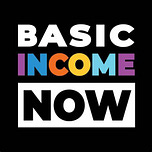Oxfam International released its annual report on January 15th. This year’s report titled, Inequality Inc, established that economic inequality is out of control.
Since 2020, over 5 billion people around the world have become poorer while the wealth of the five richest men doubled and billionaires in general saw their wealth grow by $3 trillion US.
Today, seven out of ten of the world’s largest corporations have a billionaire chief executive officer or principal shareholder.
Globally, the top one per cent own 43 per cent of all financial assets. In the year ending June 2023, 148 of the world’s largest companies generated $1.8 trillion in net profits. For every $100 of profit, $82 is paid to wealthy shareholders.
The growing disparity in wealth distribution means at current rates, it will take 230 years to end poverty – assuming the wealth gap doesn’t expand even further. But, is poverty reduction, let alone eradication, really on the radar of the wealthy who bend political, social and moral rules to improve their lot at the expense of the many?
That’s a question that I’ll be exploring today with the help of Dennis Raphael, professor of Health Policy and Management at York University in Toronto.
Food, housing pharmaceuticals and even climate change are being harnessed by corporations with the goal of increasing profits for shareholders by driving down workers’ wages, exporting jobs, lobbying government for benevolent tax rules, and increasingly privatizing public sector services.
Oxfam reports four of the five wealthiest Canadians saw their wealth increase by two-thirds since 2020. The richest 0.02 per cent of Canadians have more wealth than the bottom 80 per cent. Talk about wealth inequality!
Statistics Canada maintains most wealth is held by relatively few households in Canada. The wealthiest, top 20 per cent, accounted for more than two-thirds, 68 per cent, of net worth in the second quarter, while the least wealthy, bottom 40 per cent, accounted for 2.7 per cent.
I’ll let Ed Broadbent – another of my childhood heroes – tell you how income inequality flourishes in Canada: Ed Broadbent on Income Inequality. Spoiler alert, it has a lot to do with political choices and, as Raphael and I discuss, unbridled corporate lobbying and influence over those political choices.
And, that says Raphael, is the reason that we will not see a Basic Income Guarantee (BIG) or robust universal health care, pharmacare, dental care, child care, unemployment insurance, and on and on and on, any time soon.
The social services listed above are often referred to as being ‘free,’ a phrase that implies those using the services didn’t pay for them and may, in fact, be misappropriating them. That misnomer makes it imperative to state that these services have been paid for through our collective tax dollars. It’s the same principle that insurance companies use to convince you to buy their product -- everyone pays a little into the program so in times of need they can use the service. However, unlike corporate insurance companies who need to make a hefty profit, publicly funded and distributed social services are for the people and by the people – not wealthy shareholders.
A progressive wealth tax alone could generate $65 billion dollars for Canadians to fund, and expand, essential social services. But we’ll never get social and economic policies that generate social wealth and restore optimism for a collective future until we organize and reclaim control of the political process that corporations and lobbyists have hijacked.
Establishing and maintaining levels of unionization like those found in Scandinavia would create a good standard of living for the majority of Canadian workers and keep governments at all levels from crafting policies that benefit the wealthy at the expense of the majority.
Or, how about public alternatives to housing, telecommunications and food distribution that would rival corporations like Loblaws, Sobeys and Metro who reaped an astonishing $6 billion in profits in 2023 because they dominate 85 to 90 per cent of the market?
With over 30 years of research examining the social determinants of health, Raphael provides solid evidence that capitalism, government policy and a manipulated media are exacerbating the wealth gap in Canada while keeping actionists busy chasing the illusive promise of a BIG rather than affecting real change.
-----------------------------------------------------------------------------
Resources mentioned in the podcast are listed here:
Organizing the 1%: How Corporate Power Works by William K. Carroll and J. P. Sapinski
Canada considers a basic income guarantee: can it achieve health for all? by Dennis Raphael, Toba Bryant, Zsofia Medndly-Zambo
Is basic income the way to a better quality of life in Canada? by Dennis Raphael and Toba Bryant











